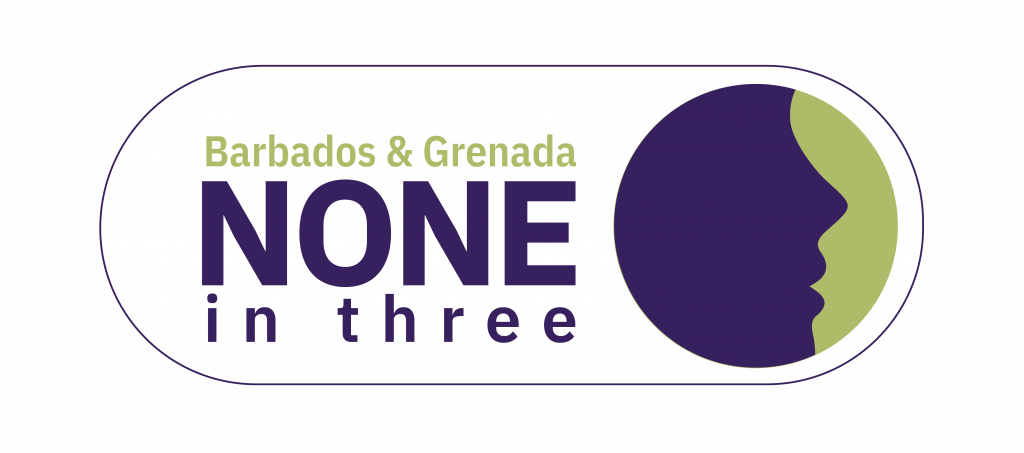Information
The Briefing sheets have been created to help spread awareness and provide information on how we can safeguard the individual.

The Briefing sheets have been created to help spread awareness and provide information on how we can safeguard the individual.
This presentation is based on research findings from the report ‘Twenty-One Lessons: preventing domestic Violence in the Carribbean’ (Full report available here – http://eprints.hud.ac.uk/30898/ ).
This qualitative study was carried out as part of the prevention of domestic violence in the Caribbean. Overall 109 participants (49 women and 60 men) from Grenada and Barbados participated in the research which was carried out between April and July 2016 by a team of Caribbean experts.
This Policy and Practice Briefing is drawn from qualitative research carried out as part of the None in Three Project, an EU-funded initiative for the prevention of domestic violence in the Caribbean (www.noneinthree.org). Overall 109 participants (49 women and 60 men) from Grenada and Barbados participated in the research which was carried out between April and July 2016. (Full report available here – http://eprints.hud.ac.uk/30898/). The focus of Policy and Practice Briefing No 1 is on
safeguarding the rights of pregnant women.
This Policy and Practice Briefing is drawn from qualitative research carried out as part of the None in Three Project, an EU-funded initiative for the prevention of domestic violence in the Caribbean (www.noneinthree.org). Overall 109 participants (49 women and 60 men) from Grenada and Barbados participated in the research which was carried out between April and July 2016. (Full report available here – http://eprints.hud.ac.uk/30898/). The focus of Policy and Practice Briefing No 2 is on safeguarding the rights of women with disabilities
This Policy and Practice Briefing is drawn from qualitative research carried out as part of the None in Three Project, an EU-funded initiative for the prevention of domestic violence in the Caribbean (www.noneinthree.org). Overall 109 participants (49 women and 60 men) from Grenada and Barbados participated in the research, which was carried out between April and July 2016. (Full report available here – http://eprints.hud.ac.uk/30898/). The focus of Policy and Practice Briefing No 3 is on
safeguarding the rights of Women Living with HIV and affected by Domestic Violence.
This Policy and Practice Briefing is drawn from qualitative research carried out as part of the None in Three Project, an EU-funded initiative for the prevention of domestic violence in the Caribbean (www.noneinthree.org). Overall 109 participants (49 women and 60 men) from Grenada and Barbados participated in the research, which was carried out between April and July 2016. (Full report available here – http://eprints.hud.ac.uk/30898/). The focus of Policy and Practice Briefing No 4 is on safeguarding the rights of women in same-sex relationships who are affected by Domestic Violence.
The None in Three project is established on the principle of inclusivity and for this reason engaged in research to obtain the perspectives of men and youth within what was primarily domestic violence research with women. The focus of Policy and Practice Briefing No 5 is on Engaging Men and Youth in Tackling Domestic Violence
Over the past 30 years, the international community has increasingly recognized violence against women as a public health problem, a violation of human rights, and a barrier to economic development. In 1993, the united Nations (UN) General Assembly formally recognized women’s right to live free of violence in the Declaration on the Elimination of Violence against Women, as did the inter-american convention on the prevention, Punishment and eradication of Violence against women (Convention on the prevention, punishment and eradication of violence against Women (convention of Belem do Para) in 1994.
A fact sheet that covers:
In the Caribbean, a region of 39 million people, there are between 350,000 and 590,000 living with HIV, per the 2013 census. (Certainty in numbers is affected by under-reporting or a considerable lag in reporting, and the long incubation period between infection and the development of AIDS which can be up to 10 years). The Caribbean carries the 2nd largest global prevalence, after Sub-Saharan Africa. The highest prevalence within the Caribbean Region is found in the Bahamas, with 96% of all Caribbean infections concentrated in five nations: the Bahamas, Dominican Republic, Haiti, Jamaica and Trinidad and Tobago. Cuba has the lowest prevalence in the Caribbean, with no sign of infection amongst pregnant women, whereas the prevalence of HIV+ pregnant women is very high in Belize, Suriname and St. Lucia. Haiti accounts for 59% of all AIDS related deaths in the Caribbean
A fact sheet that covers general facts about Domestic violence and pregnant women.
A fact sheet that covers general facts about Domestic violence and women who are trafficked.
A fact sheet that covers general facts about Domestic violence and sex workers.
A fact sheet that covers:
The devastating effects of domestic violence on women are well documented. Far less is known about the impact on children who witness a parent or caregiver being subjected to violence… children who are exposed to violence in the home may suffer a range of severe and lasting effects. Children who grow up in a violent home are more likely to be victims of child abuse. Those who are not direct victims have some of the same behavioural and psychological problems as children who are themselves physically abused. Children who are exposed to violence in the home may have difficulty learning and limited social skills, exhibit violent, risky or delinquent behaviour, or suffer from depression or severe anxiety. Children in the earliest years of life are particularly vulnerable: studies show that domestic violence is more prevalent in homes with younger children than those with older children
A fact sheet that covers: